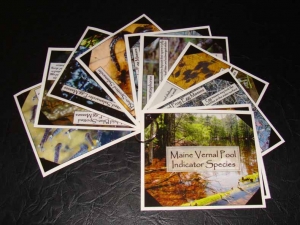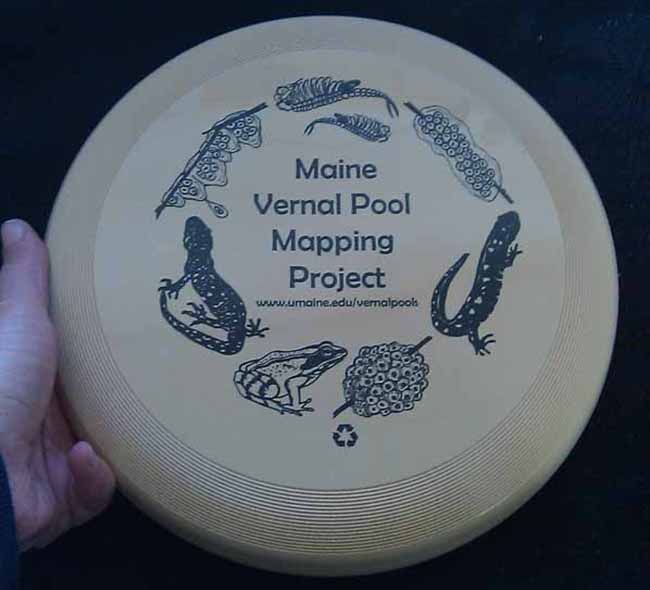
Additional Resources
Recommended timing for vernal pool surveys by geographic region
This map and schematic were created to help anticipate when surveys should be conducted around the State. They are guidelines based upon data from previous years and seasonal variation should always be considered.
Vernal pools – Conserving Maine Significant Wildlife Habitat
This fact sheet provides ecological background pertaining to vernal pools and why these natural resources should be conserved.
Vernal pools in Maine: what do landowners and towns need to know?
This factsheet briefly describes the Maine Significant Vernal Pool legislation, including criteria used to determine whether a vernal pool will be mapped as Significant Wildlife Habitat, and the seasonal constraints for when a pool may be surveyed. It also includes testimonials from towns who have mapped their vernal pools using a community based approach.
About Us
Understanding the vital connections between landowner concerns, municipal planning, conservation activities, and the ecology of vernal pools will be the focus of natural and social scientists from the University of Maine, Clark University, and Bowdoin College as they embark on a multi-year research project concerning Maine’s small natural features—vernal pools.

Field ID Cards For Maine Vernal Pool Indicator Species
These cards were created to assist volunteers with field identification of vernal pool species in Maine. Information included in this resource reflects frequently asked questions from volunteers. Laminated copies may be available at a minimal printing/laminating cost for individuals participating in town organized mapping projects, or you may print and laminate a set on your own.
Field ID Cards for Northeast Vernal Pool Indicator Species
These ID cards include species found in Maine as well as vernal pool breeding animals that occur in other Northeastern states.
Links

Our work is supported by:
